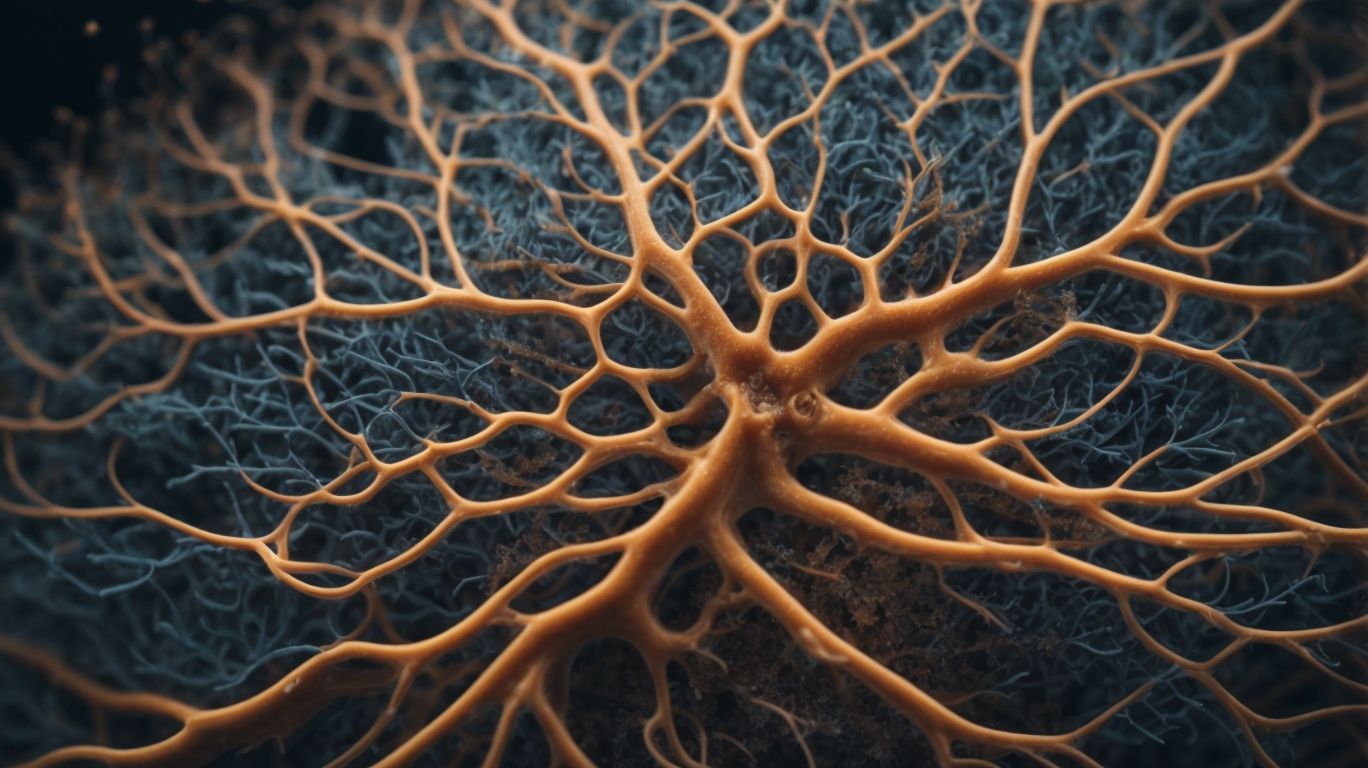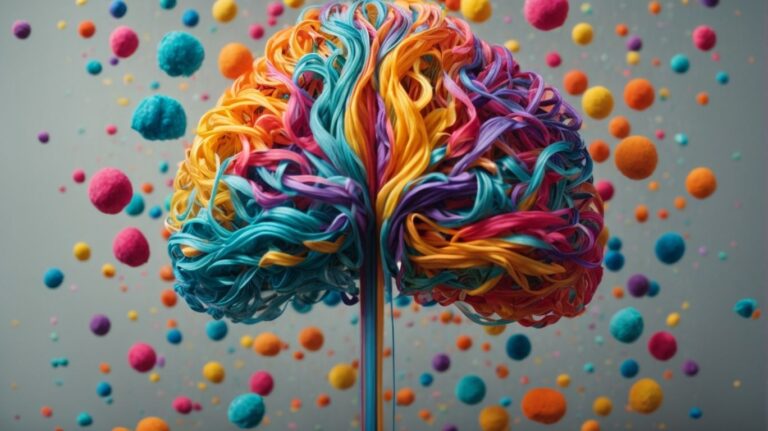Have you ever wondered about the mysterious workings of the unconscious mind? In this article, we delve into the significance of the unconscious in psychology and its profound impact on our thoughts, behavior, and even our dreams.
From shaping our personality to influencing our decision-making process, the unconscious plays a crucial role in our mental health and creativity. Join us as we explore the connection between the unconscious mind and cultural differences, shedding light on its powerful influence in various aspects of our lives.
Contents
- 1 Understanding the Unconscious Mind
- 2 What is the Significance of the Unconscious in Psychology?
- 3 The Role of the Unconscious in Personality Development
- 4 The Influence of the Unconscious in Mental Health
- 5 Exploring the Connection Between the Unconscious and Creativity
- 6 The Unconscious and Cultural Differences
- 7 Frequently Asked Questions
- 7.1 What is the significance of the unconscious in psychology?
- 7.2 How does the unconscious impact our daily lives?
- 7.3 What is the difference between the conscious and unconscious mind?
- 7.4 How do psychologists explore the significance of the unconscious?
- 7.5 Why is it important to analyze the unconscious in psychology?
- 7.6 How does exploring the unconscious contribute to psychological research?
Understanding the Unconscious Mind
Understanding the unconscious mind is a fundamental concept in psychoanalysis, pioneered by Sigmund Freud, that delves into the hidden layers of human cognition and behavior.
This revolutionary approach stemmed from Freud’s belief that our actions are influenced by unconscious motives and desires, often originating in childhood experiences. Through techniques like dream analysis and free association, he unearthed repressed memories and thoughts, shedding light on the complexities of the human psyche.
Freud’s groundbreaking work laid the foundation for modern psychology, challenging traditional views on mental health and paving the way for a deeper understanding of human behavior. His theories on the id, ego, and superego have become staples in psychological discourse, influencing countless therapists and researchers in the field.
What is the Significance of the Unconscious in Psychology?
The significance of the unconscious in psychology lies in its profound impact on cognitive processes, behavior, and psychological phenomena.
In cognitive psychology, the unconscious mind plays a crucial role in shaping how we perceive the world around us and make decisions. It influences our thought patterns, memory recall, and even our emotional responses. Understanding how the unconscious mind operates can provide insights into why individuals behave in certain ways or have specific psychological disorders.
How Does the Unconscious Impact Our Thoughts and Behavior?
The unconscious mind exerts a significant influence on our thoughts, behavior, and cognitive functions, shaping our responses and decisions without conscious awareness.
This intricate interplay between the unconscious thoughts and conscious mind can be seen in various aspects of our daily lives.
For instance, when we make impulsive decisions or react instinctively to situations, it is often the result of deep-seated beliefs or past experiences stored in the unconscious mind.
These automatic responses, driven by our unconscious thoughts, can impact how we perceive the world around us and ultimately influence our behavior.
The Role of the Unconscious in Personality Development
The role of the unconscious in personality development is pivotal, as it encompasses the hidden influences, beliefs, and factors that shape an individual’s character and behavior.
These unconscious influences may stem from childhood experiences, societal norms, cultural backgrounds, and even genetic predispositions. For instance, a person raised in a strict household may develop a more structured and disciplined personality, while someone exposed to diversity and open-mindedness may exhibit traits of adaptability and empathy.
Furthermore, unconscious beliefs play a significant role in shaping attitudes, decision-making processes, and interpersonal relationships. These beliefs, often deeply ingrained and automatic, can either enable or limit an individual’s potential and actions.
How Does the Unconscious Shape Our Personality?
The unconscious mind plays a profound role in shaping our personality by manifesting through unconscious behaviors and revealing latent content that influences our traits and characteristics.
Unconscious behaviors are those automatic, involuntary actions that stem from deep within our psyche without our conscious awareness. These behaviors can be subtle cues like body language, mannerisms, or even habits that reflect underlying desires and fears.
To explore the significance of the unconscious in psychology, you can refer to this insightful analysis provided by Verywell Mind.
The latent content, on the other hand, consists of the hidden meanings, symbols, and themes within our thoughts and dreams that often carry emotional significance and unresolved conflicts. By diving into these layers of the unconscious, psychologists can unravel the complexities of individual personalities and understand the intricate web of connections between hidden motivations and observable traits.
What Role Does the Unconscious Play in Our Dreams?
The unconscious mind guides our dreams through intricate mental processes that require interpretation and analysis, often involving the expertise of psychotherapists.
When diving into the realm of dream interpretation, it becomes evident that our unconscious thoughts and emotions manifest in symbolic forms while we sleep. Dream interpretation serves as a powerful tool in uncovering the mysteries of our innermost desires, fears, and unresolved conflicts. Psychotherapists play a crucial role in decoding these symbols and helping individuals gain insight into their subconscious minds. Through skilled analysis and compassionate guidance, they assist clients in navigating the complexities of their dreams and understanding the deeper meanings that lie beneath the surface.
How Does the Unconscious Affect Our Decision Making?
Unconscious biases subtly influence our decision-making processes, often operating beneath conscious awareness and impacting our choices without explicit recognition.
These biases are deeply ingrained within our psyche, stemming from personal experiences, societal norms, and cultural influences. They can manifest in various aspects of decision-making, from hiring practices to financial investments, leading to unintentional discrimination or unfair treatment.
- Awareness plays a crucial role in combating the effects of these biases. By recognizing and acknowledging them, individuals can implement strategies to counter their influence and make more informed and unbiased decisions.
The Influence of the Unconscious in Mental Health
The influence of the unconscious mind in mental health underscores its significance in psychotherapy, where hidden influences and beliefs are explored to promote psychological well-being.
Unconscious influences play a pivotal role in shaping an individual’s behaviors, feelings, and overall mental well-being. These hidden layers of the psyche, often built through past experiences and internalized beliefs, can profoundly impact one’s thoughts and emotions without conscious awareness. Psychotherapy serves as a crucial tool in bringing these unconscious patterns to light, offering a safe space for individuals to explore and understand their deepest fears, desires, and conflicts.
Through the therapeutic process, individuals can work towards resolving internal conflicts, gaining insights into their behaviors, and developing healthier coping mechanisms. By diving into the unconscious mind, psychotherapy aims to facilitate lasting changes that promote emotional resilience and psychological balance.
Can the Unconscious Contribute to Mental Health Issues?
Unconscious beliefs and aspects can indeed contribute to mental health issues, necessitating therapeutic interventions to reveal and address these hidden factors for effective healing.
Therapy plays a crucial role in helping individuals delve into their subconscious to understand the roots of their beliefs and behaviors. By shining a light on these unconscious aspects, therapy enables a person to gain insights, process unresolved issues, and develop healthier coping mechanisms. Through this process, individuals can dismantle harmful patterns and build resilience, ultimately leading to improved mental well-being. The therapeutic journey involves a safe and supportive space where one can explore, reflect, and reframe their internal narratives to foster positive growth and lasting change.
How Can the Unconscious Be Utilized in Therapy?
Harnessing the power of the unconscious psyche in therapy involves addressing cognitive biases and collaborating with skilled psychotherapists to navigate and transform hidden psychological patterns.
Cognitive biases play a significant role in shaping our perceptions and behaviors, often without our conscious awareness. Through therapy, individuals can explore these biases and understand how they influence decision-making, relationships, and overall well-being.
Skilled psychotherapists act as guides in this process, helping clients unravel complex layers of the unconscious mind and work through deep-seated issues. By fostering a safe and supportive environment, therapists enable individuals to confront their inner demons and embark on a journey of self-discovery and healing.
Exploring the Connection Between the Unconscious and Creativity
The connection between the unconscious and creativity unveils the profound influences of hidden processes and implicit memory on innovative thinking and artistic endeavors.
Implicit memory plays a crucial role in shaping how we perceive the world around us and process information, often without our conscious awareness. This deep-seated reservoir of past experiences, emotions, and learning guides our creative outputs in ways we may not fully grasp.
When diving into the realm of creativity, it becomes evident that our implicit memories fuel our imaginations, influencing the nuances of our artistic expression. These subtle traces from our past impact the choices we make, the colors we choose, and the stories we tell through our creative mediums.
How Does the Unconscious Influence Creative Thinking?
The unconscious mind influences creative thinking by intertwining dream interpretations, underlying mental processes, and implicit learning to stimulate novel ideas and unconventional perspectives.
When individuals delve into their dreams and interpret them, they gain valuable insights into their subconscious desires, fears, and unresolved issues. These interpretations can serve as a catalyst for creative thinking, sparking new connections and possibilities that were previously hidden or overlooked.
The intricate mental processes that occur beneath conscious awareness play a crucial role in shaping one’s creative output. These processes, such as association, synthesis, and pattern recognition, contribute to the formation of original ideas and innovative solutions.
Implicit learning, which involves acquiring knowledge and skills unconsciously through exposure and experience, enhances creative thinking by providing a vast reservoir of information and inspiration to draw upon.
What Techniques Can Be Used to Tap into the Unconscious for Creativity?
Various techniques can be employed to tap into the unconscious for creativity, drawing on the insights of psychoanalysis and addressing implicit biases to unlock hidden reservoirs of innovative potential.
One prominent approach is the utilization of dream analysis, where individuals explore their dreams for symbolic meanings and subconscious desires that can fuel creative endeavors. By diving into the symbols and metaphors present in dreams, artists and writers can uncover deep-rooted inspirations that may be hidden from conscious thought.
Another method involves association exercises, where participants freely associate words or concepts to access deeper layers of their minds. Through these exercises, individuals can bypass cognitive barriers and tap into the realm of unconscious functions, allowing for a more authentic and spontaneous flow of creativity.
The Unconscious and Cultural Differences
The interplay between the unconscious mind and cultural differences sheds light on how hidden aspects and cognitive functions vary across diverse cultural contexts, influencing perceptions and behaviors.
One fascinating aspect of this interplay is how culture can deeply impact the way individuals process information, make decisions, and interact within their social environment. Culture serves as a lens through which we perceive the world, shaping our beliefs, values, and judgments on both conscious and unconscious levels. This influence can manifest in subtle ways, such as preferences for communication styles, approaches to problem-solving, and interpretations of social cues.
How Does the Unconscious Manifest in Different Cultures?
The manifestation of the unconscious in different cultures unveils the nuances of the subconscious mind, latent content, and the expertise of board-certified physicians in understanding cross-cultural psychological phenomena.
In exploring how the unconscious manifests in diverse cultural settings, it becomes evident that each society presents unique layers of subconscious influences and latent content waiting to be deciphered. The role of board-certified physicians in these contexts is crucial; they must possess a high level of cultural competence to navigate the complexities of psychological manifestations across various cultural backgrounds.
What Impact Does Culture Have on the Unconscious Mind?
Culture exerts a profound impact on the unconscious mind, influencing automatic cognitive processes and necessitating the expertise of mental healthcare professionals versed in techniques like continuous flash suppression.
Automatic cognitive processes refer to the mental activities that occur rapidly and without conscious effort, allowing individuals to make quick judgments and decisions. These processes are heavily influenced by cultural factors, shaping perceptions, attitudes, and behaviors. For mental healthcare professionals, understanding how culture impacts these automatic processes is crucial in providing effective treatment.
Addressing cross-cultural unconscious dynamics involves not only acknowledging and respecting cultural differences but also navigating the complexities of unconscious biases and assumptions. By integrating cultural sensitivity into therapeutic approaches, professionals can help individuals navigate the diverse influences on their cognition and well-being.
Frequently Asked Questions
What is the significance of the unconscious in psychology?
The unconscious is a central concept in psychology, representing the vast and complex realm of the mind that is inaccessible to conscious awareness. It plays a critical role in shaping our thoughts, behaviors, and emotions, and exploring it allows for a deeper understanding of human psychology.
How does the unconscious impact our daily lives?
The unconscious influences our thoughts, feelings, and behaviors in ways that we are often unaware of. It can shape our relationships, decision-making, and perceptions of the world around us. By exploring the unconscious, we can gain insight into our motivations and patterns of behavior.
What is the difference between the conscious and unconscious mind?
The conscious mind is what we are aware of in our thoughts and actions. The unconscious, on the other hand, represents the parts of the mind that are beyond our conscious awareness. It includes memories, emotions, and desires that we may not consciously recognize or understand.
How do psychologists explore the significance of the unconscious?
Psychologists use various techniques such as dream analysis, free association, and hypnosis to access the unconscious and gain insight into its contents. They also study behavior and patterns to uncover unconscious motivations and underlying factors that may be driving certain behaviors.
Why is it important to analyze the unconscious in psychology?
The unconscious is an integral part of human behavior and understanding it allows for a more comprehensive understanding of psychology. By analyzing the unconscious, psychologists can help individuals gain insight into their thoughts and behaviors, leading to personal growth and development.
How does exploring the unconscious contribute to psychological research?
The unconscious plays a critical role in many psychological theories and research. By exploring the unconscious, researchers can gain a deeper understanding of human behavior and thought processes. This can lead to new insights, theories, and treatments for psychological issues.



